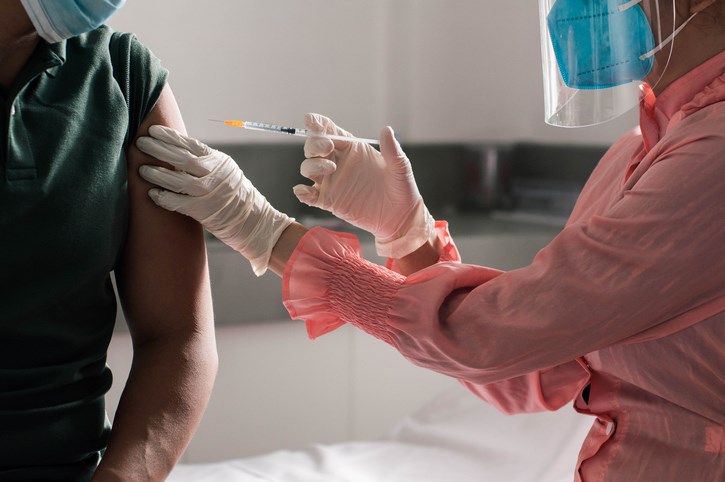The First Nations Health Authority is calling for COVID booster shots for First Nations, as an outbreak in Ahousaht First Nation on the west side of Vancouver Island continues.
“Let’s just say it’s in conversation,” Dr. Shannon McDonald, chief medical health officer for the health authority, said Monday.
There are 676 active COVID‑19 cases in First Nations on and off reserve across B.C., up from fewer than 20 active cases in mid-August, before “the Delta variant showed up,” said McDonald. Of those active cases, 58 are in hospital.
McDonald said she and her First Nations Health Authority counterparts in other provinces, including Manitoba, will present data Friday on breakthrough cases — vaccinated individuals infected with COVID — “recognizing that those breakthrough cases are almost universally not severe,” she said.
The FNHA surveillance team is working hard to prepare the data, said McDonald, who is also meeting this week with provincial health officer Dr. Bonnie Henry, who has asked the FNHA to present its evidence on the need for boosters.
Many First Nations elders were vaccinated in December and January and that immunity is waning, said McDonald.
“We gave out our first vaccines Dec. 29, so we are concerned,” she said. “We’re in conversations with the province and the federal government about when third doses may be considered and what evidence they would need to be able to move that forward.”
In Ahousaht on Flores Island, just north of Tofino, there were 23 active cases on the reserve as of Sept. 28. Eight were infected but away from home, 41 were recovering and no one was hospitalized.
McDonald said active cases have since decreased, “but we’re still extremely concerned about the transmission in the community.”
As a result of the outbreak, Ahousaht closed its K-12 school, prohibited visits from non-residents and allowed only approved essential travel onto the island.
Gatherings are on hold until further notice —“no partying,” reads a COVID notice on the Ahousaht website. “No potlucks, birthday parties, elders’ luncheon, pancake breakfast until further notice.” Only two households are allowed to gather.
People in isolation can walk on the beach only and while home can request delivery of food and cleaning supplies.
Vaccination rates in B.C. First Nations communities are lowest in the 18-to-40 age group, said McDonald, with only 50 to 60 per cent fully immunized in some communities.
Some of the unvaccinated are waiting to see how vaccinations and adverse events roll out, “but we also have those who firmly reject the concept of vaccines, which is, of course, their choice, but there are consequences to that choice,” she said.
The unvaccinated are putting both themselves and other people around them at risk, she said. “And it doesn’t seem to matter how much we communicate and try to reassure people and show them the science, there is a proportion of the population who are just firmly saying no.”
McDonald said having vaccines available all the time in some communities’ health centres would result in some waste, but could boost vaccination rates. “We are working on a model for that.”
“Every other time we’ve had product in the community we’ve gone out and literally beaten the bushes to try to bring people in.”
McDonald said the strongest tool in fighting COVID remains vaccination.
“Our goal is to maximize the number of people who are fully vaccinated in our communities and away from home.”





